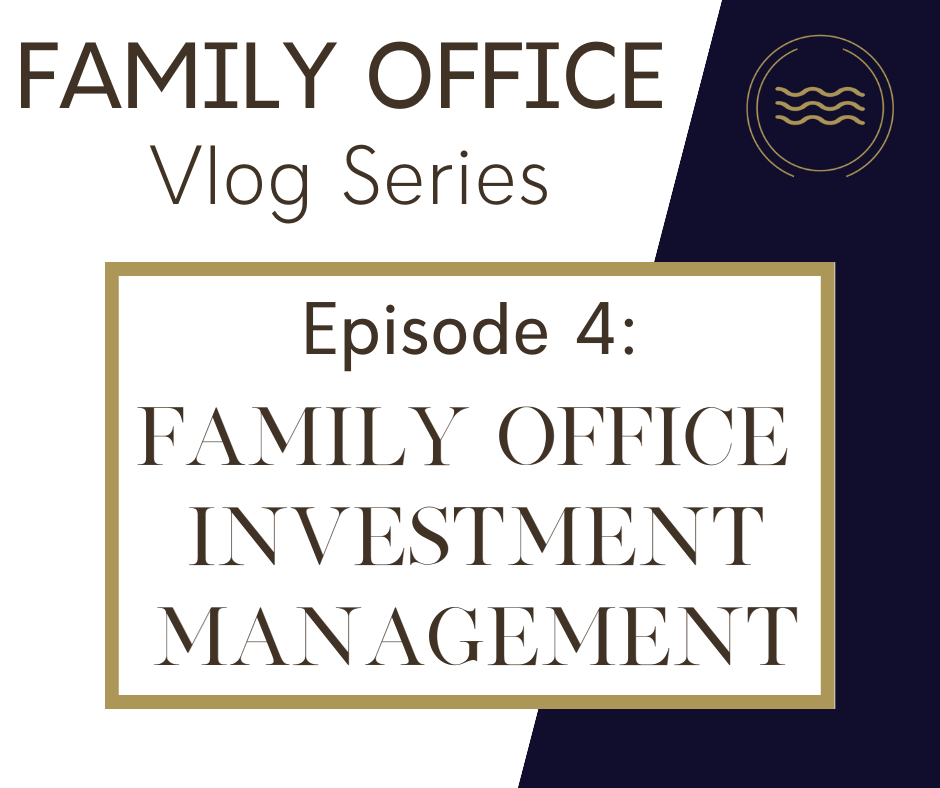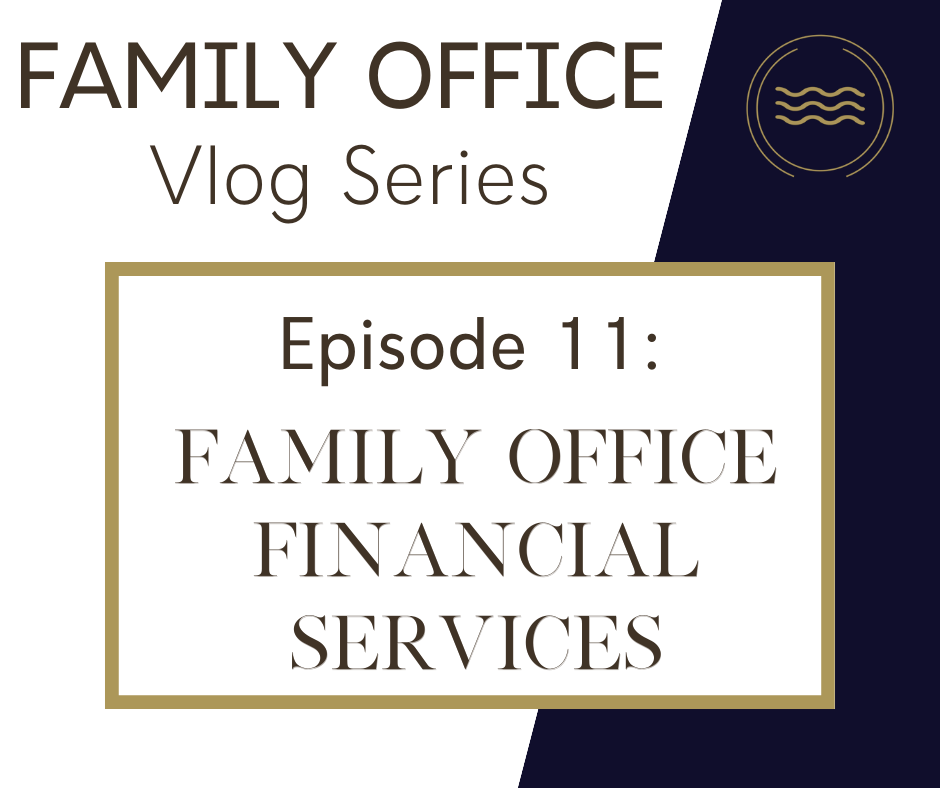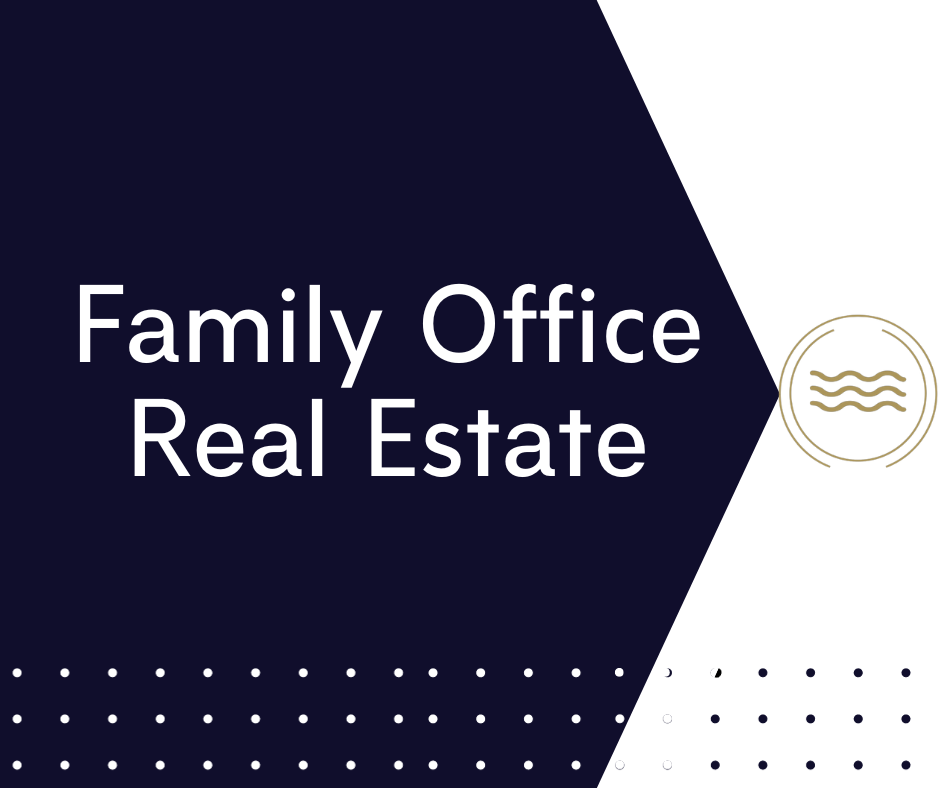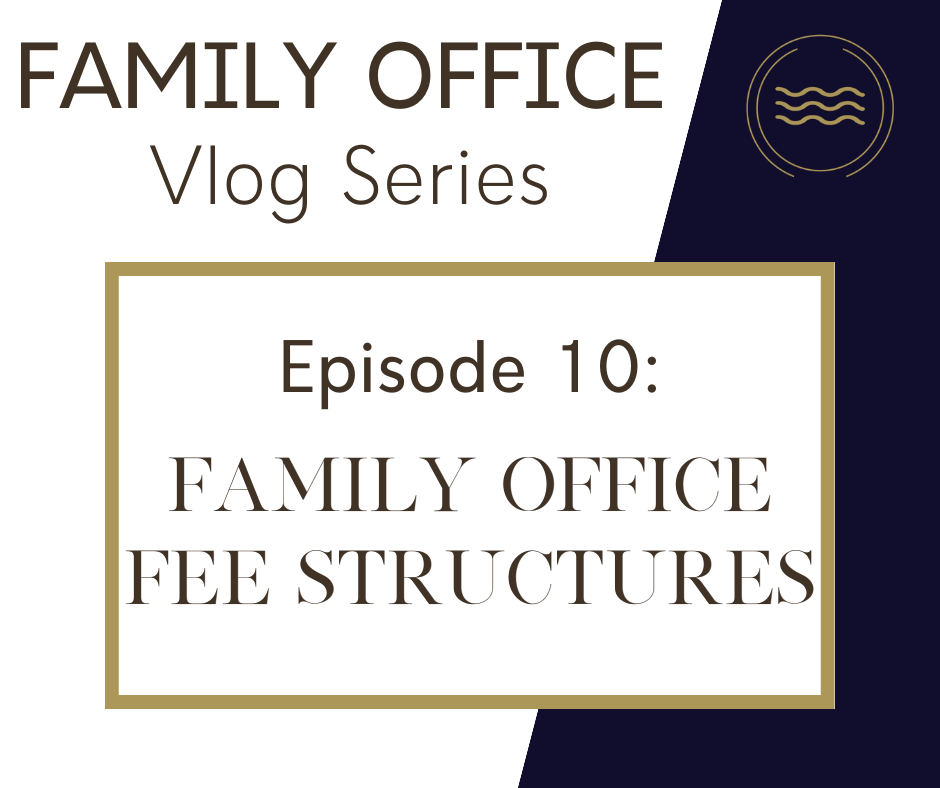
Family Office Vlog Series: Ep. 4 – Family Office Investment Management
In our fourth episode of the Family Office Vlog Series, Asena CEO Peter Harper explains the difference between family office investment management and traditional wealth management.
Transcript:
Peter Harper: Hey, guys. (This is) Peter Harper, Managing Director, and CEO of The Asena Family Office. So, today we’re going to talk about family office investment management and, principally, how it can be different or is different from traditional wealth management.
Peter Harper: I’m going to start today by stepping through, you know as a kind of a recap, you know, previously you’ve heard me talk about, you know, the basics of the family office, what is the family office, what is one, what does it do, the difference between a multi-family office and a single-family office, and then we’ll step back into some of the deeper issues around, you know the core differences of family office investment management when compared to traditional wealth management and, you know, why they’re different and why they’re so important.
Peter Harper: So, basically, what does the family office do? Really, a family office is a tool for high-net-worth families and ultra-high-net-worth families that are looking for a solution to support all aspects of their family. So, across, you know, wealth management, tax, accounting, legal, asset management in the context of personal assets, so houses, cars, planes, boats, and asset management as far as wealth, financial asset management, so Wealth Management, right? The major difference right, and I’ve been asked this before, you know okay what is a family office really anyway, and why isn’t it just different from a traditional relationship? In a traditional relationship where you’re dealing with a patriarch or a matriarch; a single person that’s made money, and you’re supporting them and their family, really all you’re concerned about is the attitudes and the needs of the principal, right? Everything else is, as an advisor, everything else is irrelevant. A major distinction of family office is when it’s, you know, multi-gen or it’s being set up to be multi-gen, is that you do care about the input and the thoughts of every family member. Well, not every family member, but the key decision makers, and you’re doing that in light of the fact that you want to build a legacy, right? You want the family office or the family wealth to be around in multiple generations. You don’t want the money to be wasted. So, that’s the core reason that most people set up a family office.
Peter Harper: How much money do you need to start a family office? This is a question that we get a lot. It ranges a great deal, but the key focal point that we always think is, okay, based on what you think you want to set up as far as a family office structure and the complexity of the asset base that you’ve got to manage, and the people; the number of family members this thing’s got to support; well, really the core focus should be around the infrastructure costs. Who are the people you need to run this successfully and sustain the family needs, and can you do that with the capital base that you have, right? So, it’s less about, particularly, how much money you need. It’s more about – can the asset base support the needs of the family? Another issue is when thinking about family offices, when you are looking at this and saying, hey this is a legacy item, this is something that we want to sustain for multiple Generations – not 20 or 30 years, but 100 to 200 years – you really do need a very strong governing board, right? You’re bringing the same sort of governance items that you would bring to bear in a successful business to within the family office. So, what does that look like? You’re going to have, you know, you’re going to have an official board; family members may be involved in that, but there should be some level of independence, right? There should be fiduciaries in place that are helping the family execute on the strategy and vision of the family, right? So, it’s ensuring; Hey listen, we’ve determined that we want to set up a family office, we have a vision that’s focused around the future legacy of the family, and we’re going to keep family members on track and accountable to those, right? And, that sort of comes into the goals and complexity of the family office, right? Again, depending on the size of the capital, the number of folks involved, and the objectives, like how long you want the family office to stick around for, and how you want it to succeed. That’s really where the complexity sits within the family office infrastructure. And then, you know, the sort of final point around the basics is there’s just many disciplines. When people think about, you know, a family office, a lot of the time they focus on the wealth aspects or the finance aspects of the family, right? Yes, you know, those aspects are very important to the continued longevity of the family, but it’s that it’s often the non-financial aspects or the non-money generating, so either the philanthropic and the support functions; they impact every part of the family, right, and without them the family would not stick together, right? So, when you’re thinking about the family office, it shouldn’t just be; Hey listen, yes, wealth management, money management, that’s the thing, that sort of, right, it’s the core that starts the family office, that sets up the family office, but it’s not the only, it’s not necessarily the single most critical aspect.
Peter Harper: Okay, so we’ve got the basics down. Now, what a family office is, we understand the services that are involved, we understand the capital needs of a family, we understand what a family office is, right? To recap, a single-family office is a family office where one family says that they want to invest in the infrastructure solely to support their needs and their investment objectives. A multi-family office is when a family says, we don’t want to have all this stuff in-house; we want it on a fractional basis. So, they engage a business like Asena Family Office to support them in that respect. You know, I’m often asked about what’s given to the recent rise of family offices, right? It feels like it’s a relatively new thing. It’s not a new thing. I mean, family offices have been around in some shape or form for, you know, an extremely long time, but the most recent rise I think, definitely in North America, can be largely attributed to a bunch of changes that happened post the financial crisis where folks understood that due to changes in banking laws and regulations, maybe it was better for more of the wealth decisions to be made outside of large financial institutions and internally within a family, right? Also, a lot of families because of the growth options available within, you know, post the financial crisis, we’re not really there in traditional markets, they had to look to alternatives, so private market opportunities where to get the same returns, a lot more capital started to flow into private equity and private market opportunities.
Peter Harper: You know, I’ve got a point here on the process of interfacing with family offices. I think it’s really important for any advisor or any person, whether it’s external, is to really understand, you know, the needs and objectives of the family, and I know this goes to say with any client, but when family infrastructure has been set up to serve the goals and objectives of the family , whether they be philanthropic, general support or capital growth, it’s really important that advisors understand that, right? A lot of the time, these folks are thinking about this with a very long-term perspective, right, and so your traditional attitudes around that may not always be helpful.
Peter Harper: And, this goes back to the next point where I’ve made a note here around the challenges of dealing with family offices, and you know, the ones that I’ve always seen. You know, the family offices that have been the most successful, has been that it’s all been around organization, right, proper organization, operational organizational efficiency.
Have questions about Family Office Investment Management? Get in touch using our Contact Us section to the right.



